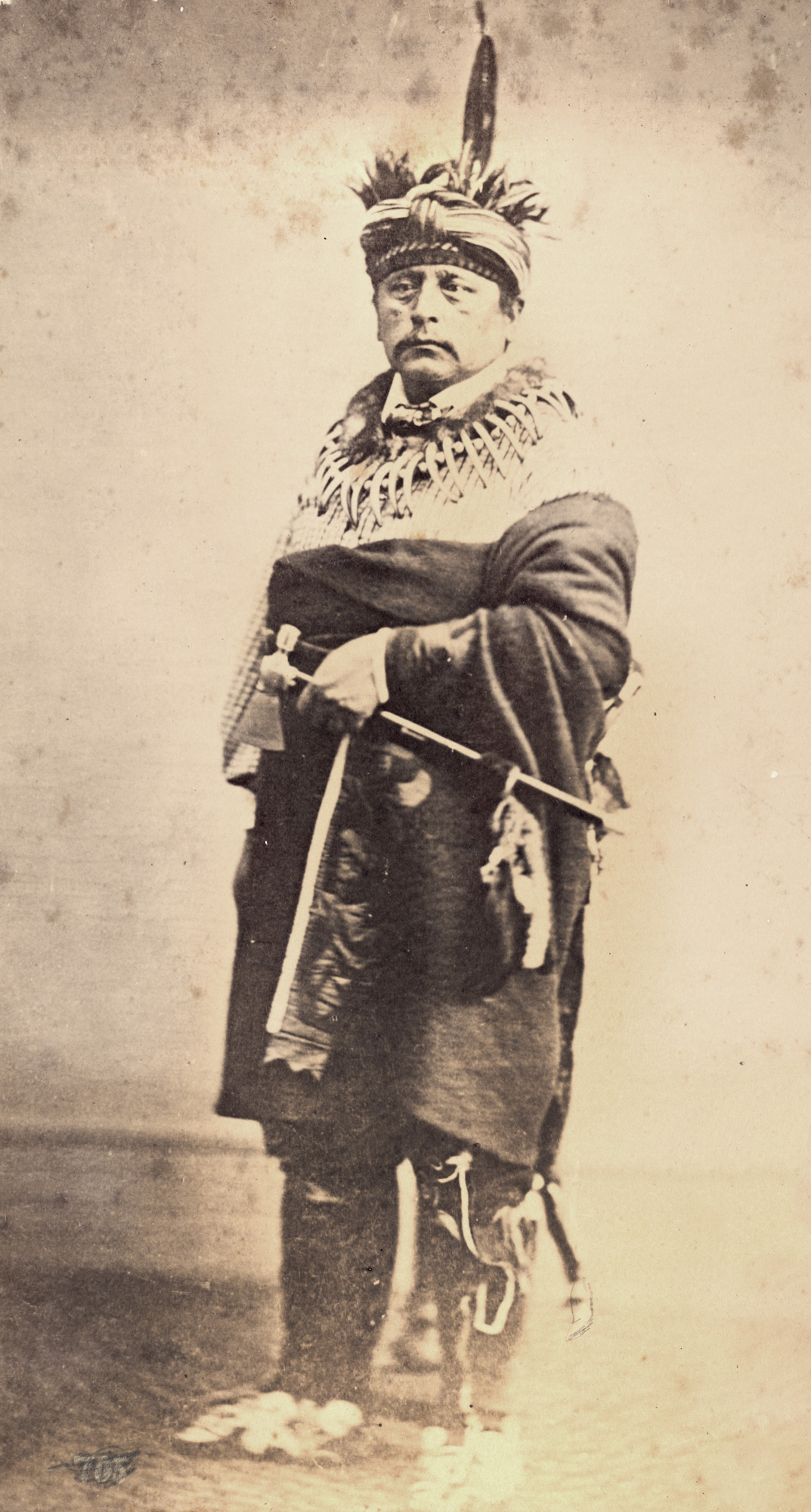KEOKUK, MOSES (ca. 1821–1903).
A chief of the Sac and Fox tribe, Moses Keokuk (Wunagisa, "He Who Leaps Up Quickly from His Lair") was the son of Keokuk, the U.S. government–recognized leader of the Sac and Fox. Upon Keokuk's death in 1848, Moses Keokuk assumed his father's position, and he followed a policy of cooperation with the United States. As a Baptist minister, following his conversion to Christianity circa 1877, Keokuk encouraged his people to attend Christian religious services and lead a more Euroamerican lifestyle.
As a tribal leader Keokuk signed several treaties with the U.S. government. In Iowa Territory in 1842 "Ke-o-kuk, Jr.," helped negotiate the treaty in which the Sac and Fox ceded their lands west of the Mississippi River. In the treaty of 1859 the Kansas reservation of his "Sac and Fox of the Mississippi" was allotted into 80-acre sections. Along with the tribe's removal to Indian Territory, the treaty of 1867 provided for the sale of the remaining surplus Sac and Fox acreage in Kansas and the settlement of tribal debts. Finally, as first assistant principal chief Keokuk signed the agreement of 1891 by which the Sac and Fox Reservation in Indian Territory was allotted to tribal members. Their surplus lands were then opened for settlement by run on September 22, 1891.
Moses Keokuk died on October 27, 1903, at the Sac and Fox Agency in present Lincoln County, Oklahoma, and was buried in the Sac and Fox tribal cemetery. His house (burned in 2002), located south of Stroud, is listed in the National Register of Historic Places (NR 73001563).
See Also
Bibliography
William T. Hagan, The Sac and Fox Indians (Norman: University of Oklahoma Press, 1958).
R. Morton House, "'The Only Way' Church and the Sac and Fox Indians," The Chronicles of Oklahoma 43 (Winter 1965–66).
"Moses Keokuk," Vertical File, Research Division, Oklahoma Historical Society, Oklahoma City.
Browse By Topic
American IndiansExplore
PeopleAmerican Indian
Public Servants and Civic Leaders
Religion and Philosophy
Citation
The following (as per The Chicago Manual of Style, 17th edition) is the preferred citation for articles:
Michael Lee Weber, “Keokuk, Moses,” The Encyclopedia of Oklahoma History and Culture, https://www.okhistory.org/publications/enc/entry?entry=KE008.
Published January 15, 2010
© Oklahoma Historical Society



